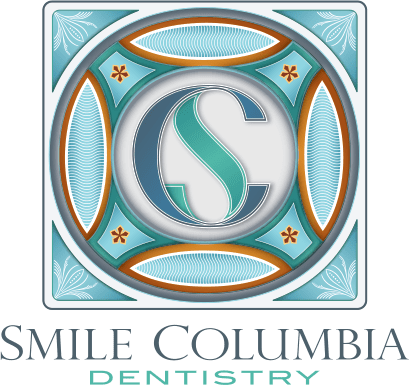TMJ or TMD is often called “the great impostor” because it can cause many symptoms that seem completely unrelated to your bite, such as vertigo. Vertigo is when you feel dizzy or off balance because the entire world seems to be moving when it’s not. A poorly aligned jaw can put pressure on the balance organs in your inner ear, reducing their ability to function and causing vertigo or dizziness.
If you suffer from vertigo or dizziness, we may be able to help. Our experienced dentist Dr. Adam Hahn has helped many people in Columbia, SC get relief from TMJ symptoms like vertigo. To talk to him about your vertigo, dizziness, or other TMJ-related problems, please call (803) 781-9090 or email Smile Columbia Dentistry to schedule an appointment today.
How Balance Works
In order to maintain your balance, your brain uses information from three sources. The vestibular system in your inner ear accounts for about 60% of the information, while the other 40% is divided between your eyes and your body’s sense of its muscles and joints, what’s known as proprioception. You feel dizzy or off-balance when these three sources of information don’t correspond.
Inside the vestibular system is a structure of three half circles called the labyrinth. These tiny bony canals are filled with fluid, and when the fluid moves, the body senses the movement with tiny hairs. The movement of the fluid gives us information about our orientation, like a more complicated version of the bubble in a carpenter’s level. It is susceptible to disruption by certain types of motion that cause the fluid to keep flowing even after you stop, such as spinning around in circles, or being moved in many direction successively. That’s why you feel dizzy. The motion of the fluid is either confusion or doesn’t correspond with visual data.

How TMJ Causes Dizziness & Vertigo
The vestibular system of your inner ear is located in your temporal bone, which is also where your jaw bone attaches to the skull. When your jaw is out of balance, it can put excessive force on this bone and lead to a misalignment of the vestibular system. This will cause it to give incorrect, conflicting signals to the brain about your balance, leading to dizziness or feelings of vertigo.
Successful TMJ Treatment for Dizziness & Vertigo
Meniere’s disease is a known ear condition named for the French physician Prosper Meniere, who discovered it in 1861. Meniere’s disease affects the functioning of the inner ear, causing symptoms commonly seen in TMJ as well: dizziness, vertigo, tinnitus, stuffiness, or ear pain. If a person is diagnosed with Meniere’s disease, they are often told there is no cure to the condition.
However, TMJ treatment can resolve these symptoms and has been known to cure several cases diagnosed as Meniere’s disease. This shows how important it is to get a second opinion when you’ve been told you have a chronic, incurable condition, such as Meniere’s disease.
In one clinical trial 100% of TMJ sufferers who complained of dizziness or vertigo saw relief with TMJ treatment.
To learn whether Dr. Adam Hahn can give you relief from your ongoing dizziness, hearing loss, or other ear problems, please call (803) 781-9090 or contact Smile Columbia Dentistry in Columbia, SC to schedule an appointment.




